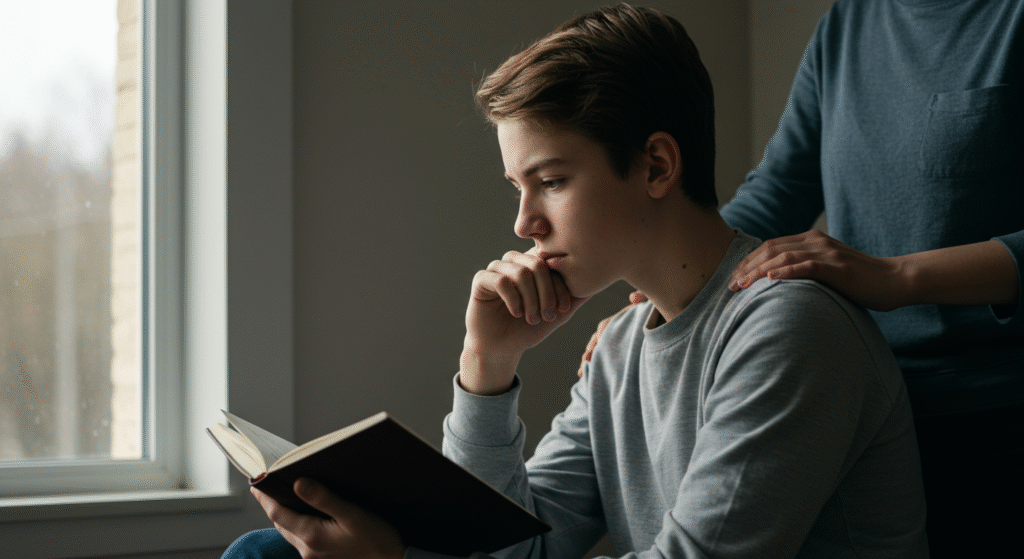
Optimistic Mood in Difficult Times
Staying positive in these uncertain days is tough for everyone. COVID-19 has reshaped our routines, limiting outdoor activities and enforcing self-quarantine. Social distancing and staying indoors have become the new normal—and this can take a heavier toll on people struggling with depression or other mental health conditions.
“Don’t be pushed around by the fears in your mind. Be led by the dreams in your heart.”
— Roy T. Bennett, The Light in the Heart
As a parent or caregiver, your role is more important than ever—especially if your child battles depression. With no school, limited friend contact, and constant proximity at home, your support and understanding can make a world of difference.
How to Keep the Home Environment Positive
🗣️ 1. Start With Listening
Create a safe space for your child’s thoughts. If they share something negative, resist the urge to correct or dismiss it. Instead, thank them for opening up and show genuine interest. This builds trust and signals that they are heard, even when what they’re saying is difficult.
🧠 2. Validate Their Feelings
You may not agree with everything they feel—but don’t make them feel guilty about it. Depression warps thoughts, and invalidating them might push your child further into isolation. Let them know it’s okay to feel what they’re feeling, and you’re here to support them.
👀 3. Watch for Behavioral Changes
Be attentive. Signs of increased irritability, sudden changes in eating or sleeping, or withdrawing completely can be red flags. While it’s normal for routines to shift during quarantine, a consistent pattern of low mood, reclusiveness, or aggression could mean depression is getting worse.
💪 Encourage (Don’t Force) Healthy Habits
Even small amounts of physical activity—like stretching, yoga, or dancing—can boost mood and reduce stress. Make movement a natural part of the day. Suggest outdoor walks, home workouts, or simple chores that get them up and about.
⚠️ Be gentle. The goal is consistency, not perfection. Let them choose how to participate.
🧭 Create a Routine (With Room for Joy)
Routines provide structure and security, especially during unpredictable times. Help them strike a balance between:
- Daily responsibilities (like schoolwork or helping at home)
- Mental resets (through hobbies, music, journaling, games)
- Connection time (chatting with friends online or via video calls)
- Family bonding (like shared meals or movie nights)
Even a simple “what’s our plan today?” conversation each morning can create rhythm and reduce mental clutter.
🧡 Your Support Matters More Than Ever
This is a heavy season for everyone—but for teens with mental health struggles, it can feel overwhelming. Your calm presence, open ears, and consistent love can be the most powerful tool in preventing a mental health spiral.
Make time. Show up. Stay involved. Whether you’re folding laundry or attending a virtual graduation ceremony together—your attention affirms their worth.
✨ Final Words
These are unprecedented times, but they will not last forever. Stay patient. Stay engaged. Keep your home open to conversation and full of small joys. Depression may linger, but hope can still grow—even in quarantine.

